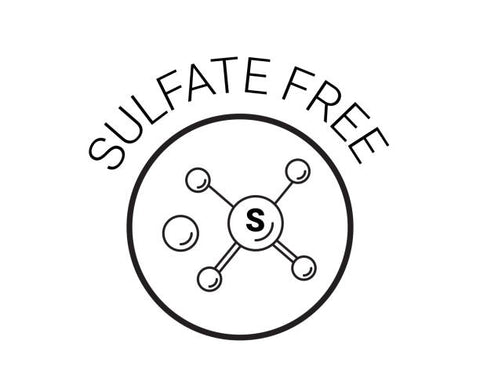Sulfates, commonly found in personal care and household cleaning products, serve as effective surfactants and foaming agents, contributing to lathering and cleansing properties. While sulfates play a vital role in product performance, their presence has raised questions about potential effects on skin, hair, and overall health.

Unveiling the Role of Sulfates in Products
1. Cleansing Properties:
Sulfates, such as sodium lauryl sulfate (SLS) and sodium laureth sulfate (SLES), act as surfactants, breaking down oils and dirt on surfaces to facilitate effective cleansing and removal.2. Foaming and Lathering:
Sulfates contribute to the foaming and lathering properties of products, creating a rich, luxurious lather that enhances the sensory experience of washing and cleaning.3. Compatibility with Formulations:
Sulfates exhibit compatibility with a wide range of formulations, making them versatile additives in personal care products, including shampoos, body washes, toothpaste, and household cleaners.Understanding Potential Effects and Concerns
1. Skin and Scalp Sensitivity: Sulfates can strip the skin and scalp of natural oils, leading to dryness, irritation, and sensitivity, particularly for individuals with sensitive skin, eczema, or dermatitis.
2. Hair Texture and Color: Sulfates may contribute to hair dryness, frizz, and color fading by removing natural oils and stripping away color molecules from dyed hair, impacting texture and vibrancy.
3. Eye and Mucous Membrane Irritation: Products containing sulfates, especially those used near the eyes or mucous membranes, may cause irritation, stinging, or discomfort, necessitating caution during use.
Navigating Product Choices and Alternatives

1. Sulfate-Free Formulations:
- Many brands offer sulfate-free alternatives, utilizing milder surfactants, natural cleansers, and botanical extracts to provide effective cleansing without the potential drawbacks associated with sulfates.
2. Reading Product Labels:
- Consumers are encouraged to read product labels and ingredient lists carefully, seeking out sulfate-free formulations or products labeled as "gentle," "mild," or "sensitive skin" if they have concerns about sulfates or experience skin or scalp sensitivity.
3. Personal Preference and Trial:
- Individuals may choose to experiment with sulfate-free products to assess their compatibility with their skin, hair, and personal preferences, adjusting their choices based on individual experiences and needs.
Conclusion: Balancing Performance and Sensitivity
While sulfates contribute to the efficacy and sensory experience of many personal care and cleaning products, their potential effects on skin, hair, and overall well-being warrant consideration. By understanding the role of sulfates, exploring alternatives, and making informed choices aligned with individual preferences and sensitivities, consumers can strike a balance between product performance and personal wellness.
Author: Nikita Vishnoi BCA












